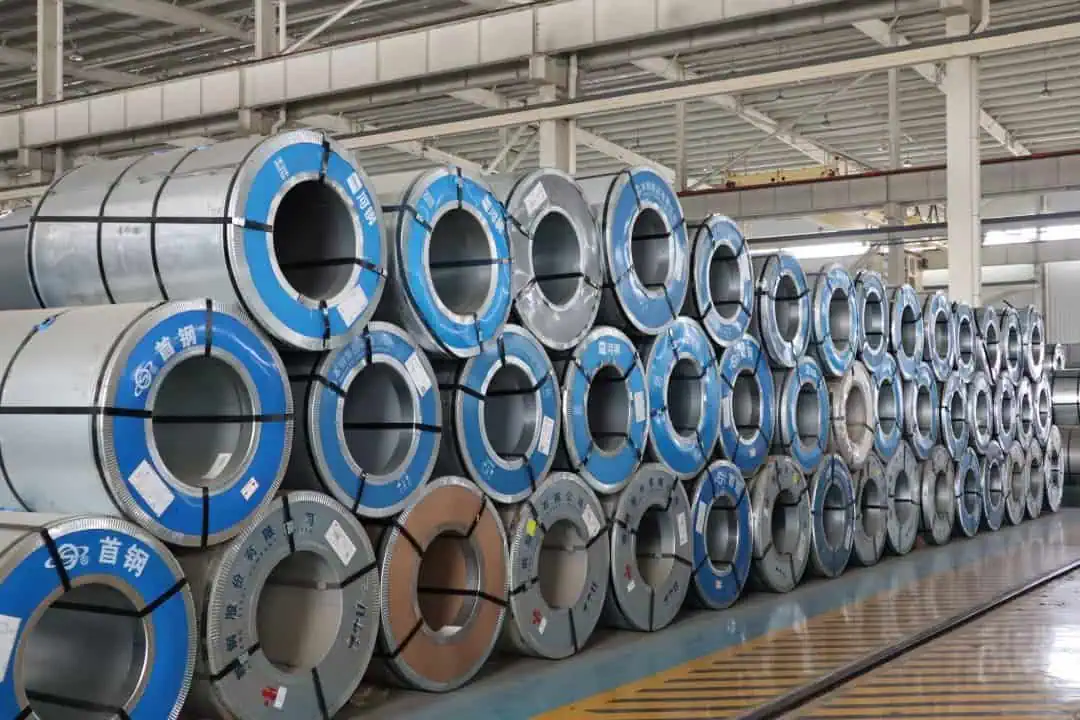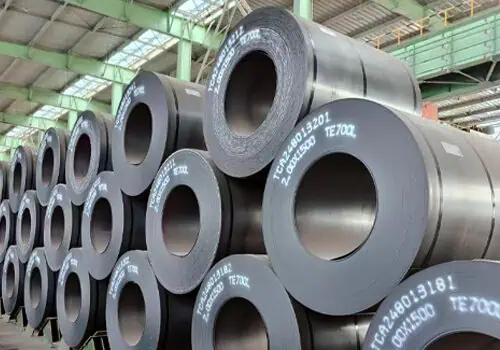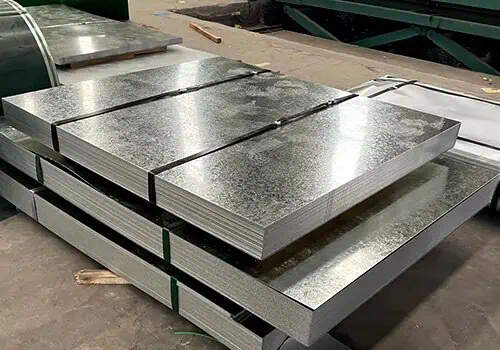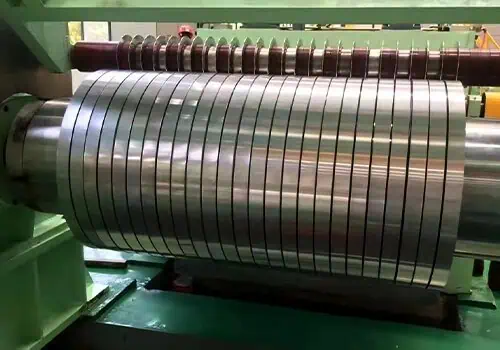Struggling to understand how heavy steel coils are and why weight varies? You’re not alone — choosing the wrong type can cost you money, time, and performance.
How heavy are steel coils? Steel coils can weigh anywhere from a few hundred kilograms to over 30 tons depending on size, thickness, material, and packaging. Use a steel coil weight chart, or apply the steel coil weight formula to determine accurate mass. Knowing the weight helps in logistics, storage planning, and ensuring compliance with equipment limits.
Let’s explore what affects coil weight and how to calculate it efficiently for your operations.
What Is a Steel Coil?
Before we can understand how heavy are steel coils, we need to define what they are and their industrial role.
A steel coil is a sheet of metal that has been rolled into a coil using a hot or cold rolling mill. It is widely used in various industries, including construction, automobiles, and appliances.
Steel coils are compact, rolled steel sheets that can be easily transported and processed. They are available in a variety of forms, including hot rolled, cold rolled, galvanized, and stainless steel coils. Understanding what are steel coils used for helps clarify why their weight matters: heavy-duty applications require thicker, stronger materials, which naturally weigh more.
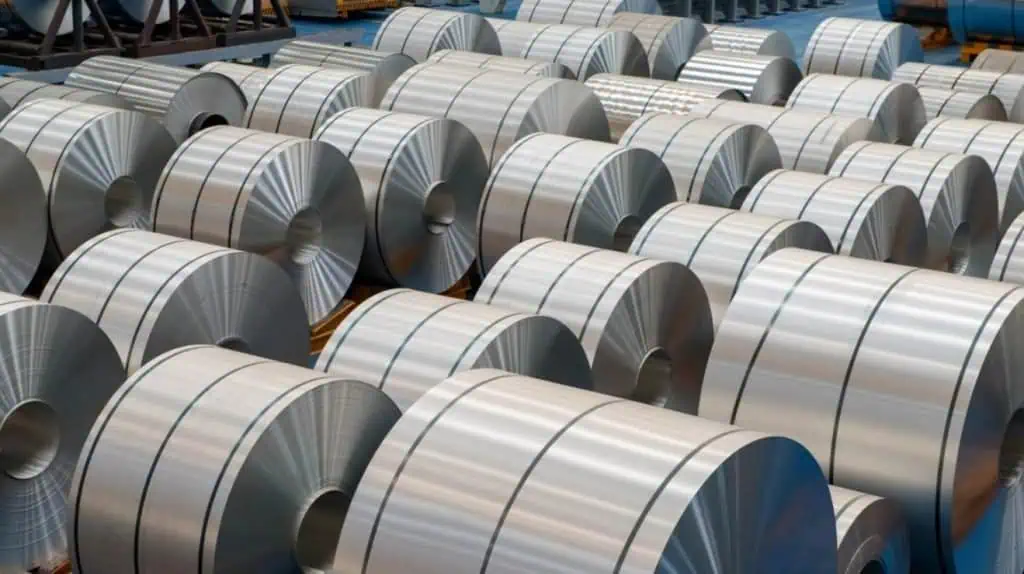
Why Is Steel Coil Heavy?
Ever wondered how are steel coils so heavy? The answer lies in the physical properties of the material.
Steel has a high density of approximately 7.85 g/cm³, making it much heavier than materials like aluminum. Combine that with length and thickness, and the result is substantial weight.
Unlike plastic or aluminum, steel is dense and solid, meaning it takes up less volume but carries more mass. This explains how heavy are those steel coils and why handling them requires cranes or forklifts. The coiling process compresses long sheets into tight rolls, contributing further to their perceived weight.
What Is the Density of a Steel Coil?
To calculate steel coil weight in kg, understanding the density is the first step.
Carbon steel has a standard density of approximately 7,850 kg/m³ (or 7.85 g/cm³). Stainless steel can vary slightly depending on the alloy content.
The density remains relatively constant across steel types, though higher alloy content may increase it slightly. When using the steel coil od calculator or other formulas, density is an important consideration. Steel coil weight formula includes volume × density. If the volume is in cubic meters, multiply by 7,850 to get kilograms.
What Is the Average Weight of a Steel Coil?
The average weight of a steel coil depends on size, thickness, and whether it’s hot or cold rolled.
Typical steel coil weight in tons ranges from 5 to 25 tons, with common weights between 8–15 tons. Smaller coils for specific industries can weigh as little as 500 kg.
For standard construction use, coils are often around 10–15 tons. The steel coil size chart helps buyers predict how much does steel coil weigh, especially when planning transport. In pounds, a 10-ton coil equals about 22,000 lbs—an important figure for shipping compliance.
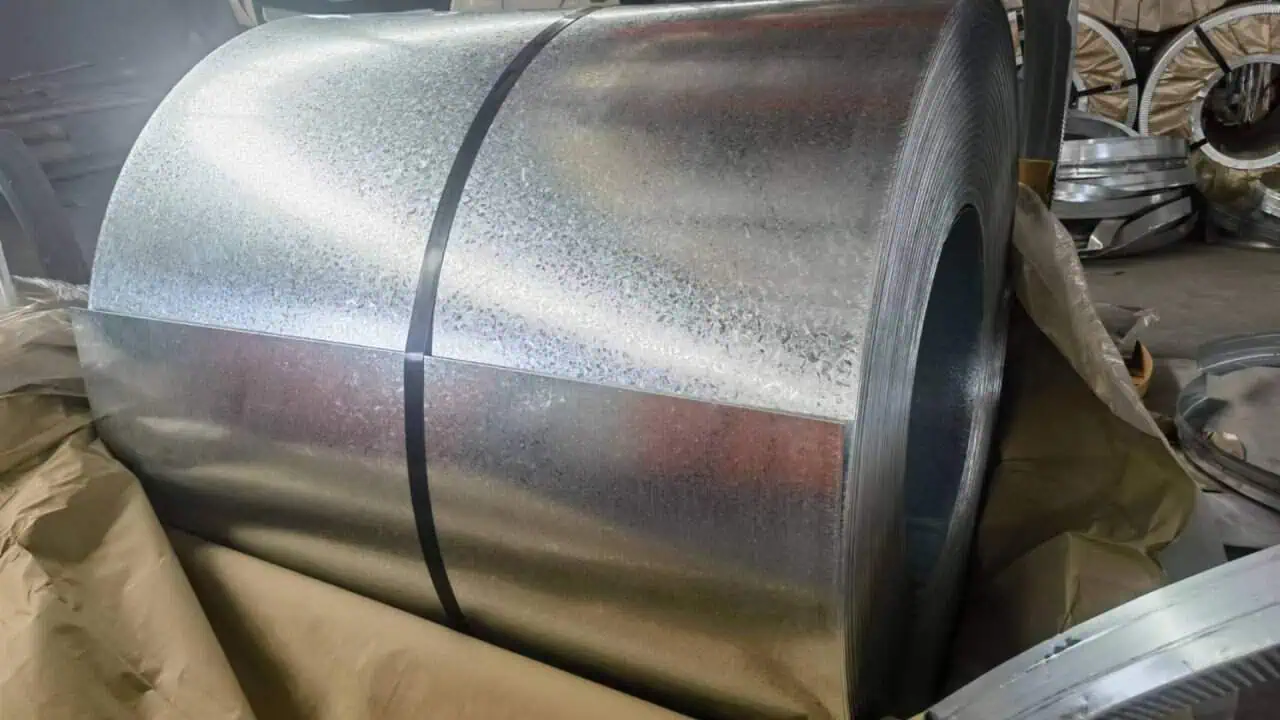
How Strong Is a Steel Coil?
Weight is not the only factor that matters; strength determines usage and lifespan.
A steel coil’s strength comes from its composition and treatment. Cold-rolled coils tend to be stronger and more uniform than hot-rolled alternatives.
Yield strength ranges between 250 MPa (mild steel) and 1,000 MPa (high-strength alloy steel). Stronger coils are used in more demanding applications such as bridges, pipelines, and structural frames. Thus, what steel coils are for also depends on their strength and not just weight.
What Are Heavy Steel Coils Used For?
Now that we know how heavy steel coils are, what industries benefit from using them?
Heavy steel coils are primarily used in construction, shipbuilding, and heavy machinery manufacturing due to their high strength and large material volume.
Construction companies use these coils for beams, columns, and reinforcements. Automotive industries need them for chassis and frames. In energy, steel coils form pipelines and storage tanks. Knowing what are steel coils used for informs purchasing decisions and capacity planning.
How Do Steel Coils Compare to Other Materials in Weight?
Let’s compare steel rolls weight with materials like aluminum or plastic.
Steel is roughly three times heavier than aluminum. So, even if the volume is similar, how much do steel coils weigh will be significantly more than aluminum coils.
While aluminum coils may weigh around 3,000 kg, steel of the same volume could exceed 9,000 kg. This makes steel suitable for load-bearing structures, but more challenging for shipping. Use the steel coil weight chart to easily compare weights by material type.
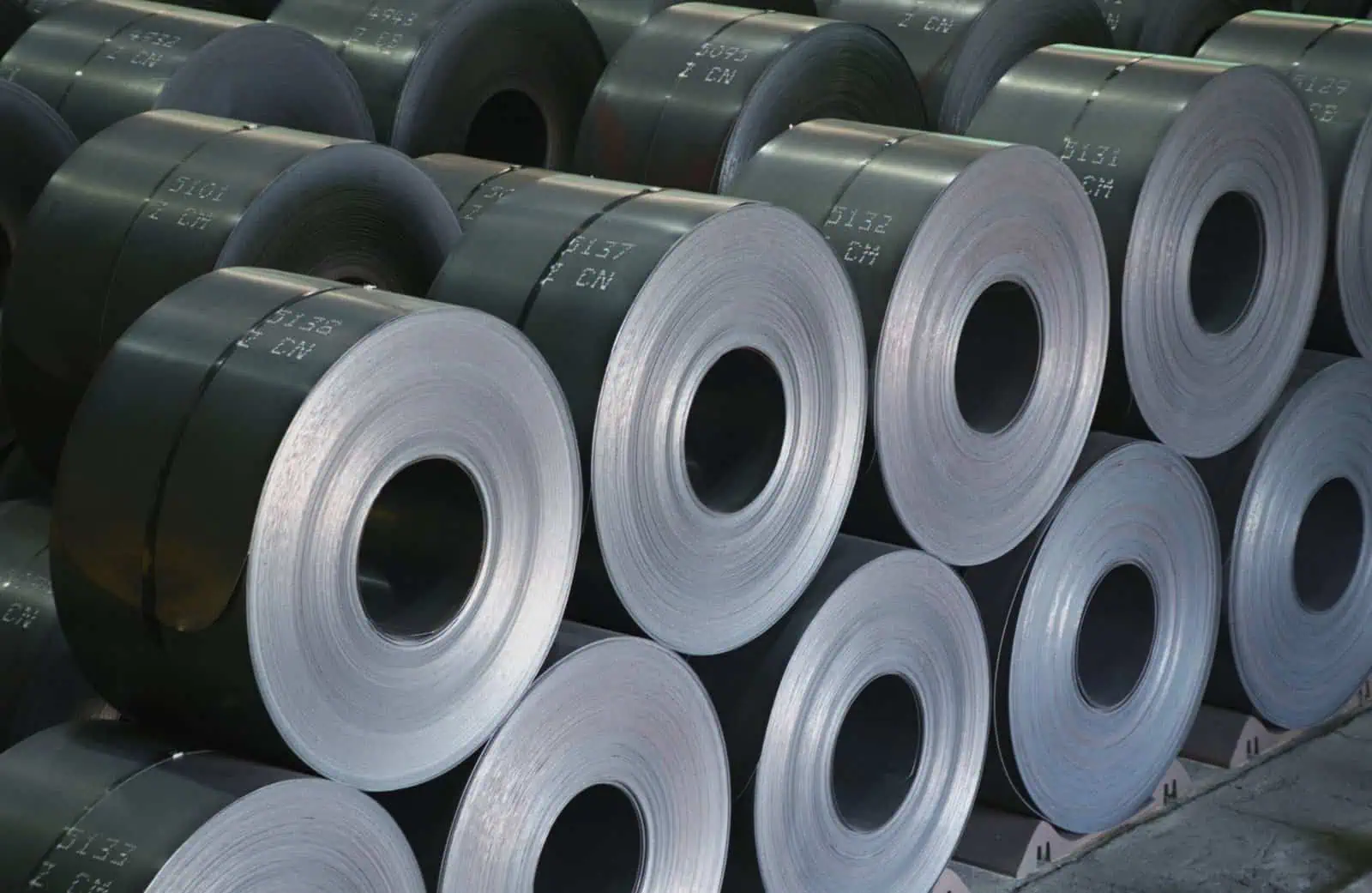
What Role Does Thickness Play in the Weight of Steel Coils?
The thicker the steel, the heavier the coil—a simple but important relationship.
Doubling thickness nearly doubles the steel coil weight if other variables remain the same. Thickness is one of the most influential factors.
A 1 mm thick coil may weigh 5 tons, whereas a 2 mm version with the same diameter may weigh 10 tons. Adjust thickness calculations with a steel coil weight formula or software. Coil buyers frequently request thickness-specific pricing due to the cost of additional weight.
What Are the Common Sizes of Steel Coils?
To predict how much does a coil of steel weigh, you need to know the coil’s size.
Standard coil widths range from 600 mm to 2,000 mm, and diameters vary up to 2 meters. Coil thickness ranges from 0.3 mm to 12 mm.
The steel coil size chart helps you match applications with size and weight. For instance, coils used in roofing tend to be thinner and lighter, while those used in shipbuilding are thicker and heavier. This variation significantly impacts how heavy is a steel coil in real-world use.
How Are Steel Coils Weighed in the Industry?
Accurately determining how to calculate steel coil weight is key for logistics and procurement.
Industries use automated systems or load cells for high-precision measurement. Calculations often involve width × thickness × length × density.
Some plants rely on manual weighing for small coils, but larger operations use software and hardware systems for automation. A typical formula for how do you calculate the weight of a steel coil is:
Weight (kg) = Width (m) × Thickness (m) × Length (m) × 7,850 kg/m³
Online calculators like the steel coil od calculator simplify this process for businesses and engineers.
Summary
Understanding how much do steel coils weigh helps with planning, logistics, and budgeting. Use formulas and charts to make accurate, informed decisions.

